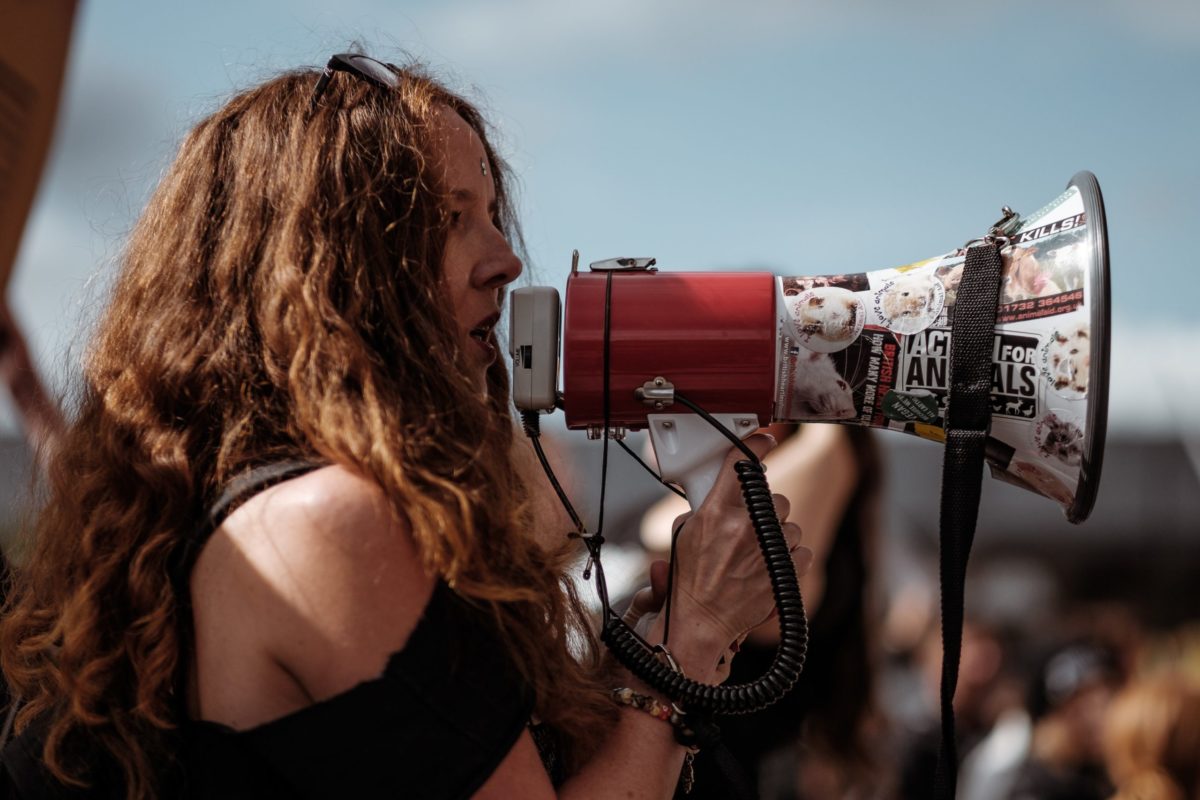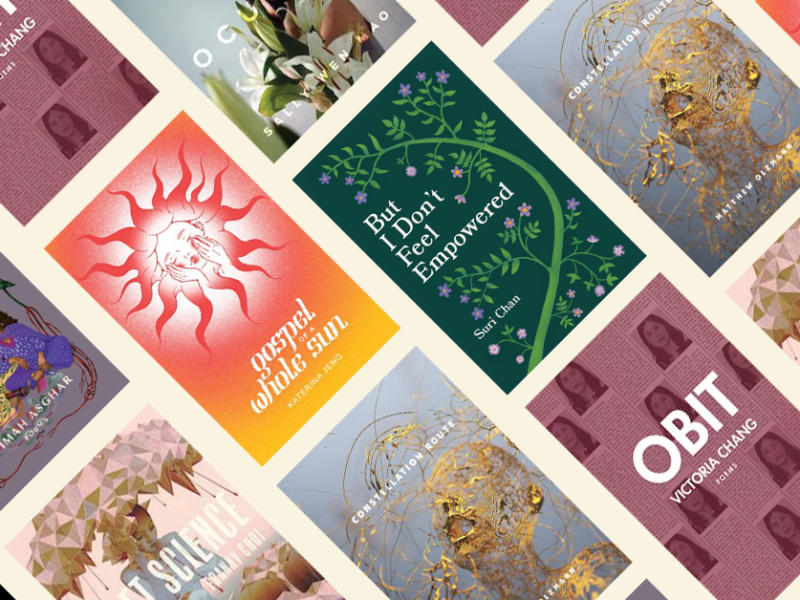My Body, My Choice: Four Outspoken Poets Writing for Reproductive Rights
Trigger Warning: This article discusses abortion, sexual violence, and rape culture.
It’s been a challenging and painful several years for feminist activists. A wave of anti-abortion heartbeat bills, shuttered health clinics, a Supreme Court newly dominated by anti-choice and misogynist justices who threaten to overturn Roe v. Wade, and the continued prevalence of rape culture raise serious concerns about the future of body autonomy. Yet despite the vocal and headline-grabbing opposition, polls show that the majority of Americans favor both abortion rights and access to free or low-cost birth control. Of course, poetry often reflects the anger and social issues of its society, putting resistance into words. These four poems related to reproductive rights pair eloquence and activism to reinforce a central point: The personal is political (and, now, it’s poetic).
“a poem about abortion” by Devi K. Lockwood
Split This Rock, an organization that melds poetry and social justice, named this poem a finalist in their annual Abortion Rights Poetry Contest. Within its stanzas, Lockwood takes on the voice of an abortion provider, calling to mind doctors like George Tiller, who anti-choice activists assassinated. Lockwood acknowledges this fear and vitriol, writing, “In my line of work, / I need love to keep my hands from freezing on the inside. There are people / carrying signs outside my door, shouting arguments about fingernail / development. I need a pen to spin through my fingers when they are idle. / I need you to turn up the radio, louder please. Just so that I don’t have / to listen to this shit again.”
However, Lockwood employs juxtaposition to showcase the experience’s complexity, matching anger and frustration with equally deep joy. “When I retire, I want to live in a meadow with / not one child, not one soul in sight. Really, they kiss the wind / as they blow past,” she continues. Overall, the poem emphasizes the absence of regret, pushing back against common misconceptions about abortion. It encourages women to stand firm in their power. Meanwhile, it also explores the unfortunate fact that women must use this strength to guard themselves against extremist attacks: “No, not scrubs. Put on your tight purple dress and heels, / dig them into the carpet. You have to look gorgeous, / that way they’ll trust you.”
[”with relation to lives as women do now on screen in swimsuits or lacking (spread) cuts”] by Sara Wintz
This poem comes from Wintz’s collection Walking Across A Field We Are Focused on at This Time Now, an innovative project that reimagines the traditional epic poem as a 20-year Wikipedia search history. Through this sprawling book, Wintz examines social identity—with feminism and reproductive rights as crucial components. This experimental format works as an opportunity to revisit women’s cataloged accomplishments and historical milestones.
“at times as women may take on a new life . . . with circumstances unscripted: saussure’s course in linguistics (1916) emma goldman arrested for lecturing on birth control (1916) margaret sanger opens first U.S. birth control clinic (1916),” Wintz lists. Reading this progressive record calls to mind how we ourselves might be remembered and what changes we could make. While memorializing these trailblazers, Wintz’s poem also recalls how media and larger society reacted to them during their lifetimes: “watching the late show there are women who present answers to questions / absurdly wrong,” she writes. “what can be true / when asked not to act like oneself.”
“Shot Up in the Sexual Revolution: The True Adventures of Suzy Creamcheese” by Cynthia Huntington
“Suzy Creamcheese” became a fictional figure in songs by The Mothers of Invention, a rock band popularized during the 1960s, the era of the sexual revolution. As her name might imply, the members mocked this archetype: She acted as a stand-in for underaged groupies seen as promiscuous. However, Huntington turns this persona on its head, instead personifying Suzy Creamcheese as a nuanced, fully developed character, dealing with the many perils of womanhood at the time.
In the poem, Huntington calls sex “a taking, / like spoils of war / a victory,” illustrating how the act can be centered on male domination, male competition, and solely male pleasure, with women treated as mere sex objects. In the voice of Suzy Creamcheese, Huntington remembers one of these sexual experiences: “‘You’re good,’ he said. Hell, I wasn’t taking a typing test / I was fighting to live in a dying world.”
Huntington subverts the persona poem to turn Suzy from sex object to sacred, praising the beauty of women’s bodies and rebuking the disrespect they face. “But I have this sweet pink flower / here between my legs—I put my hand down and touch it, / still soft and wet, and many-folded, endlessly opening, / hiding, seeking, hidden and sought, / but never very much admired or even smiled on / in those years, never served much less sung to,” Huntington laments.
“What Kind of Times Are These” by Adrienne Rich
The title of this poem might sound familiar to anyone who has groaned at a news alert, cried after an election, or felt legitimate fear over what the future will look like. Rich sets a scene that mirrors a modern-day dystopia: “this is not somewhere else but here, / our country moving closer to its own truth and dread, / its own ways of making people disappear.”
Though “truth and dread” accompany the fact that, in 2020, our country remains committed to controlling women, Rich imagines a private, hopeful place outside of this control. “I won’t tell you where this place is, the dark mesh of the woods / meeting the unmarked strip of light— / ghost-ridden crossroads, leafmold paradise: / I know already who wants to buy it, sell it, make it disappear.”
“And I won’t tell you where it is, so why do I tell you / anything?” Rich asks, perhaps echoing many who currently see change as nearly impossible. “Because you still listen, because in times like these / . . . it’s necessary / to talk about trees.”
As these powerful works show, poetry can be a rallying cry to fight for your rights. In this spirit, write a poem about how access to these key healthcare services has impacted your life, or a poem about your vision for true reproductive justice.
Editor’s Note: This article was originally published on March 11, 2020 and has been updated for relevance, accuracy, and comprehensiveness.




